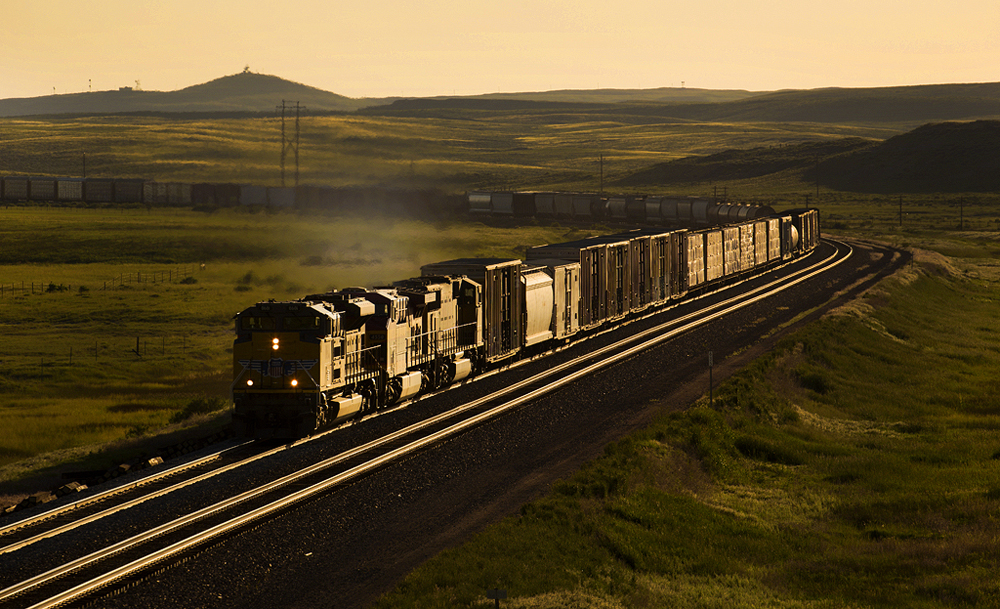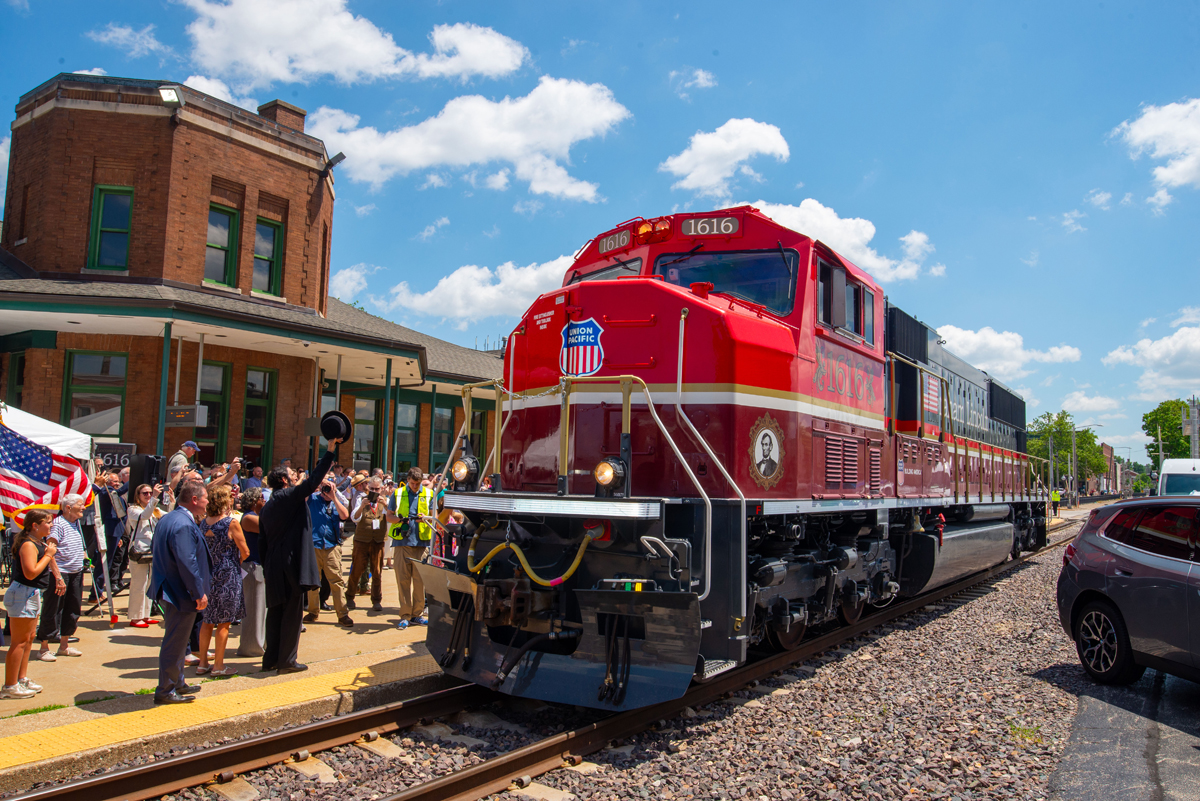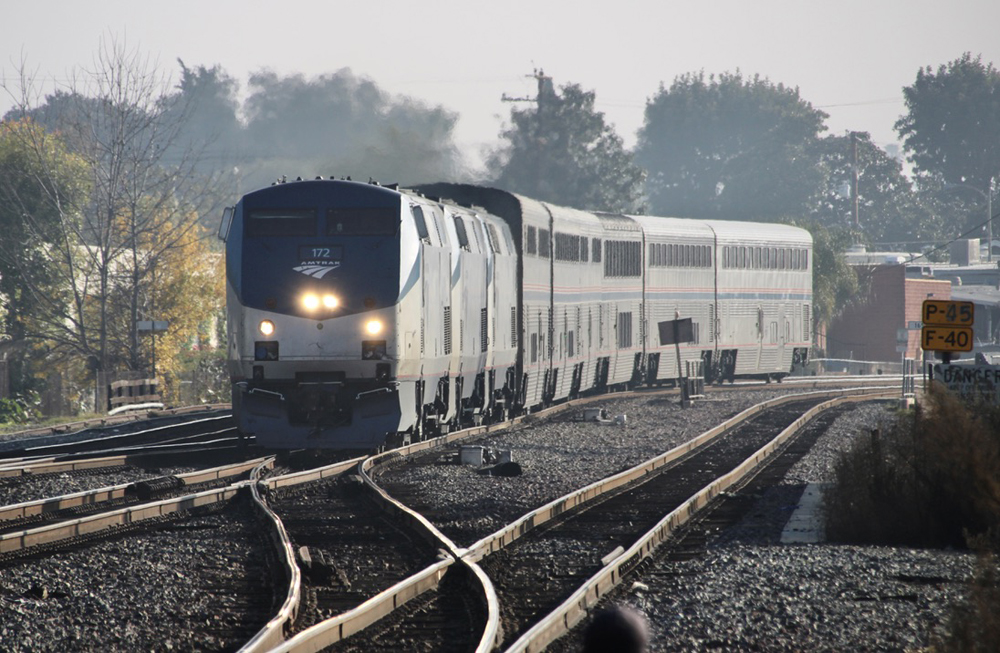
DEERFIELD, Ill. — Union Pacific’s plan to begin metering traffic as of today will curtail fertilizer shipments and put crops at risk, a major fertilizer producer says.
“The timing of this action by Union Pacific could not come at a worse time for farmers,” CF Industries CEO Tony Will said in a statement on Thursday. “Not only will fertilizer be delayed by these shipping restrictions, but additional fertilizer needed to complete spring applications may be unable to reach farmers at all. By placing this arbitrary restriction on just a handful of shippers, Union Pacific is jeopardizing farmers’ harvests and increasing the cost of food for consumers.”
CF Industries informed its customers located on UP that railroad-mandated shipping reductions would result in nitrogen fertilizer shipment delays during the spring application season. The company also informed customers that it would be unable to accept new rail sales involving UP for the foreseeable future.
UP on April 8 told CF Industries that it would have to reduce its shipments by nearly 20% as part of the railroad’s plan to reduce congestion in the midst of crew and locomotive shortages.
CF Industries said it will ask the Surface Transportation Board to intervene so that fertilizer shipments are prioritized.
“CF Industries’ North American manufacturing network continues to produce at a high rate to meet the needs of customers, farmers and consumers,” Will said. “We urge the federal government to take action to remove these Union Pacific rail shipment restrictions to ensure this vital fertilizer will be able to reach U.S. farmers when and where they need it.”
The fertilizer company said it was one of only 30 shippers to face restrictions designed to unclog the UP network. CF Industries ships to customers via Union Pacific rail lines primarily from its Donaldsonville Complex in Louisiana and its Port Neal Complex in Iowa. The rail lines serve key agricultural areas such as Iowa, Illinois, Kansas, Nebraska, Texas, and California.
Affected products include nitrogen fertilizers such as urea and urea ammonium nitrate, as well as diesel exhaust fluid, an emissions control product required for diesel trucks. CF Industries is the largest producer of all three products in North America, and its Donaldsonville Complex is the largest single production facility for the products in North America.
CF Industries says crop yields will be lower this year if farmers are unable to secure all the nitrogen fertilizer that they need. This will likely extend the timeline to replenish global grains stocks and contribute to higher food prices, the company contends.
UP sent an email to customers earlier this month outlining the railroad’s goal of removing 15,000 private cars from current inventory. UP is pulling nearly 3% of railroad-owned cars from the system. The railroad has said it will work with customers to avoid plant shutdowns and other potential negative impacts.
“Union Pacific is committed to proactively supporting our customers, and we are working with them to address the impact of several disruptive events,” spokeswoman Kristen South says. The railroad is taking several steps to address “national supply chain issues,” including adding 100 locomotives to the active fleet, training 450 new employees with more scheduled to graduate from conductor training this summer, and relocating 80 crew members to high-demand areas.
UP also says it’s “partnering with customers to begin a metered approach in the coming days. This allows us to continue serving all customers while simultaneously working through a backlog of cars, restoring our ability to process volume – an approach we successfully applied last year with West Coast intermodal traffic.”
Other shippers have complained about the restrictions, but none publicly like CF Industries.
The number of cars on the railroad has grown over the past 60 days and in the week ending April 8 topped 300,000 for the first time since 2018, when UP was in the midst of an operational funk that lasted more than a year. The railroad is short of crew and power, and says it’s hiring aggressively while pulling locomotives out of storage.
When a railroad’s average train speed drops and terminal dwell rises, transit times increase and service becomes more erratic. Shippers typically add cars to their fleets as rail service slows, which tends to exacerbate congestion and delays.
The STB has ordered executives from UP, BNSF Railway, CSX Transportation, and Norfolk Southern to appear at a hearing on service issues scheduled for April 26 and 27 [see “Federal regulators to hold hearings …,” Trains News Wire, April 7, 2022]. Board Chairman Martin J. Oberman has blamed the service problems on job cuts related to Precision Scheduled Railroading and the industry’s focus on reducing operating ratios.
— Updated at 9:05 a.m. CDT with comments from Union Pacific.














STB is correct. PSR is to blame for most of the problems on all of the class ones. Get rid of the current CEOs who only worship the share holder and install CEOs who realize the customers and employees are the most important and most of the problems will fix themselves.
Yes! , As my father used to tell me, “There is NO unselfish motive.”
Turns out the world’s number one exporter of fertilizer is (was?) Russia. This is a domestic problem with international implications.
Everyone, and I do mean everyone, appears to have missed the one paragraph, and I quote: “CF Industries says crop yields will be lower this year if farmers are unable to secure all the nitrogen fertilizer that they need. This will likely extend the timeline to replenish global grains stocks and contribute to higher food prices, the company contends.” It is NOT the United States job to insure that GLOBAL grain stocks are replenished unless the other countries are willing to PAY for our grain, as long as the cut backs in shipment doesn’t affect DOMESTIC food supply and prices, then I’m all for it…whatever it takes to get back on track service wise.
So as long as you get yours to heck with everyone else is that right Gerald? Let um starve? And maybe you’d rather see thousands of jobs that depend on America’s farms lost. Or maybe you’d like to see some other country like Russia step in to fill the void. And by the way if you really believe that what the railroads are proposing won’t drive up cost for U.S. consumers then maybe you should take an economics 101 class.
Like Amtrak, executive bonuses are based on cost-cutting rather than revenue-enhancement via increased business volume and customer service. It’s a disease that has spread throughout the industry. The cure is re-regulation, taken soon and in copious quantities!
How about money hungry leadership who artificially slow trains in the name of fuel conservation. 70 mph trains doing 40 or 50 because the computer is running. It doesn’t have a damn thing to do with cell phones. It’s people tired of working 2 weeks then being furloughed for 2 years.
People are tired of working 2 weeks than being furloughed for 2 years? Really, Joseph, why would you think that? Sounds like the perfect job to me.
I have to wonder, what railroad CEO would take the job without two years pay guaranteed in his contract.
Newsflash Charles…CEO pay isn’t guaranteed either, they can be fired at anytime without severance. Unlike regular employees, CEO’s aren’t entitled to unemployment. I’d prefer to see their pay NOT tied into the performance of the company, of which many are, which is another reason for them to increase profits and raise stock prices…to sweeten their own pockets.
Gerald I’m trying to remember the last time or if I ever heard of a corporate CEO in todays world being fired and not receiving a HUGE severance package. In the railroad or any industry todays CEO’s always negotiate golden parachutes just in case they can’t cut it. Even when they’ve been totally inept, criminal or even quit their jobs they come out smelling like a rose.
While not specifically defending the actions taken by any of the Class I’s or looking to initiate any discussion related to working condition issues, I do know first hand from many of railroads, and all of you should realize, that like many other employers in the USA, railroads across the country are having significant challenges hiring and retaining operating employees, especially due to important federal safety regulations.
A large percentage of the current potential candidates can’t seem to be able to shut off and stow their cell phones while on duty and they only want to work weekdays during the daytime (e.g. nights, weekends and holidays off). Plus with the proliferation of states legalizing recreational marijuana use there are candidates who refuse pre-employment drug tests and others who are later testing positive after being hired.
Sounds a lot like the “pick-your-excuse” Brian Carlson alluded to above.
“railroads across the country are having significant challenges hiring and retaining operating employees, especially due to important federal safety regulations.”
Laying off 10-15 year veterans was probably not a good idea then.
In defense of the railroads, Delta and Southwest pilots are going to start picketing at airports due to the fact they can’t get enough pilots hired back and so the existing ones are being overworked. Airline pilots (like engineers) work in a regulated industry and require a drug free, specially trained level of expertise.
I do find it interesting with the recent legalization of cannabis in many states, that regulated industries in turn are having a hard time finding talent.
Right at the beginning of the spring planting season. Impeccable timing, UP.
This industry is headed straight for re-regulation, and they don’t have anyone else to blame but themselves. Not the weather, not covid, not lack of labor, not pick-your-excuse. It’s only through their own inept management and singular submission to Wall Street and The Almighty OR that they are headed back to regulation. And they deserve it.
Re-regulation won’t work. The railroads would drag things out in a long legal battle. The only way this ends is the reformation of Conrail, only this time for the entire country, not just the Northeast.
E. H. Harriman, Arthur Stoddard, Ed Bailey and John Kenefick are turning over in their tombs. Not only on this but over what UP has become. Sad.
Making their customers and ultimately the general population pay the price of horrid decisions made by inept management pandering to the hedgies is borderline criminal.
The UP and all the other PSR loving rail roads need to level all the humps and idle more yards in the name of GRIDLOCK.
JOHN — It’s bad enough to ignore a shipper, it’s even worse than that to blame a shipper for the railroad’s inability to move traffic.
UPRR is asking for more than re-reg. UPRR is asking to be confiscated by the government as a public nuisance.
Didn’t the STB warn the Class 1’s that they needed to be ready for a ramp up post Covid? Guess this goes to show you who the railroads listen too and its not the STB. Changes coming around the bend and it won’t be pretty for Hedge Fund Inc.
Hedge Fund, Inc. is a little strong. So-called Institutional firms own the vast majority of most large stocks. Vanguard, for instance, owns the most shares of both Norfolk Southern and Union Pacific and second most of CSX, owning 8% of the last two railroads and 7.2% of the first. The other top 9 stock holders are other investment companies, Black Rock, for instance, having a 4% share of all three.
So you think Vanguard and Black Rock are pushing the Class 1’s into PSR madness? Hedge Funds owned less than 1% of GameStop but they were still putting up bets against it. ( and lost due to the Robin Hood incident)
If I simply called it “Wall Street Inc.” would sound just as strong?
That would be fair in this case, because you have now covered a broader base. The real issue that individual investors, even as a group have little voting sway. Still, I wouldn’t be surprised that this has always been the case. It is just now that these institutional investors (which may or may not be located on Wall Street and can include state pension funds) are pushing a specific operating philosophy rather than being satisfied with a steady dividend check.
Largest single shareholder is Vanguard group with 8 percent. Hard to believe that they would be dictating how to run the railroad. They are looking for a good return on their investment. Look to the board of directors and top management who have been drinking the PSR cool aid.